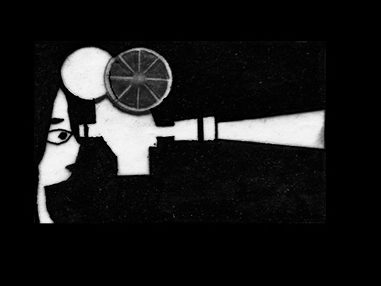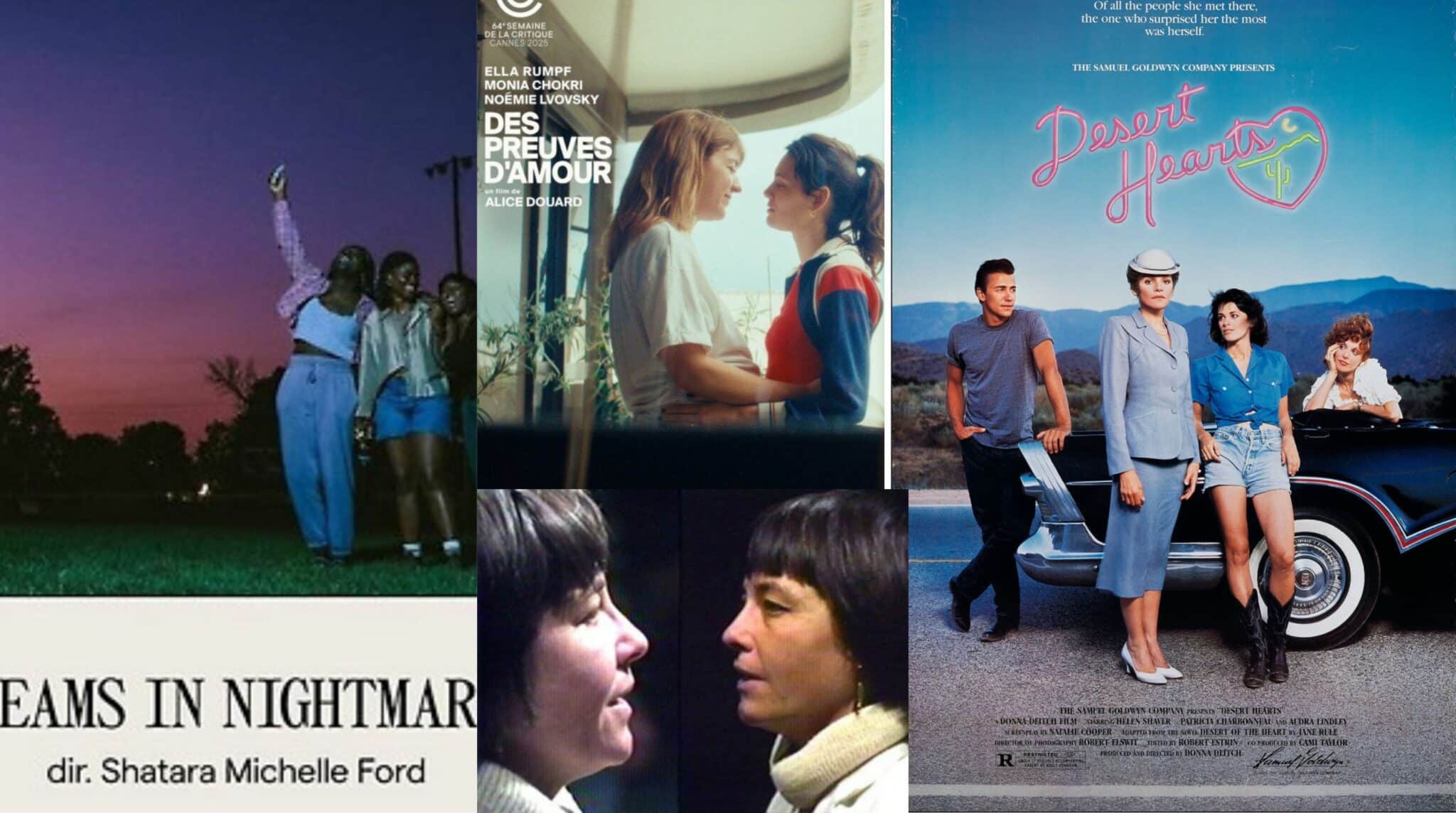Noteworthy Queer Films at CEFF 2025
Four stories of age, desire, and resistance among the queer films of the Champs-Élysées Film Festival 2025.
Why the Queer Films at Champs-Élysées Film Festival 2025 Mattered
Seen at Publicis and Mac Mahon, this themed program brought together four films spanning forty years, yet united by a shared intuition: aging is not a downfall, but an opening. To age queer is to finally inhabit one’s body, to reject imposed narratives, to craft one’s own temporality. Four cinematic gestures, four ways to love beyond the norm: Desert Hearts, Stress Scars & Pleasure Wrinkles, Des preuves d’amour, and Dreams in Nightmares.
Desert Hearts: Lesbian Love at Forty
There’s something quietly radical about Desert Hearts, even forty years on.
A 1985 film by Donna Deitch, about love between two women—without tragedy, punishment, or downfall. Vivian, a freshly divorced New York academic, travels to arid Nevada to start over. There, she meets Cay—younger, freer, more direct. The desire is immediate, but the film resists haste. It’s all about glances, shared spaces, and taut silences.
Donna Deitch captures the awakening of a grown woman to her own desire. The film doesn’t idealize lesbian love—it makes it possible. At forty, Vivian discovers that to love is still ahead of her.
This isn’t about fixing a life, but opening a new one. The film’s beauty lies in its simplicity: age is not an obstacle, but an opportunity. Aging here means emancipation. The light, the desert, the slow editing—everything in Desert Hearts evokes a late but no less vibrant sensuality. The film doesn’t try to “make lesbianism visible”; it makes it obvious. A true masterpiece.
Barbara Hammer: Queer Body, Body as Archive
With Barbara Hammer, there is no fiction. Her own body is the subject, the medium, and the matter. She films her scars, her wrinkles, her memories of pleasure like others would film landscapes. This 1976 short is raw, direct, corporeal. Yet it doesn’t shock—it displaces. Aging isn’t decay to hide, but a terrain to explore. Every fold, every mark becomes the sign of a life: lived, assumed, embodied. The camera trembles, but never retreats. It moves through the body like a wordless autobiography.
What strikes most is the refusal to explain. No didactic voice-over, no militant message. Just montage, textures, rhythm. Hammer invents a queer cinema from within—without outside narration, without justification. The body isn’t shown; it shows itself. Age isn’t problematized—it’s experienced. In just seventeen minutes, the film distills a long-form aesthetic, a politics of intimacy.
Des preuves d’amour: Becoming a Mother Without a Child
Alice Douard’s debut feature, Des preuves d’amour, unfolds elsewhere: in post–marriage equality France, in a present where rights don’t guarantee recognition or clarity. Céline isn’t pregnant, yet she awaits a child—her wife Nadia is carrying their daughter. The film follows this invisible waiting, this secondary gestation, this ambiguous position that no law quite protects. She is a mother—but nothing proves it. She loves—but it’s not enough.
Douard films a quiet persistence. Daily gestures, awkwardness, sideways glances. The camera is gentle, close, devoid of pathos. This is not about denunciation—it’s about documentation. What the film captures is uncertainty: legal, emotional, existential. Céline, played with rare nuance by Ella Rumpf, embodies this queer motherhood without landmarks, without precedent, without certainty.
Again, aging is not about settling—it’s about searching. The film offers no resolution, only companionship. It reveals another way to inhabit adulthood, to build a family, to create ties without assignments. A soft yet firm political act: turning the ordinary into a space of resistance.
Dreams in Nightmares: A Queer Film Awarded at the Champs-Élysées Film Festival
Three Black, queer women in their thirties set off across the Midwest in search of a missing friend. It could be a thriller, a quest. But Shatara Michelle Ford refuses conventional structure.
The film drifts, diverges, detours. What they seek isn’t a body—but a space. The road is no progress—it’s a labyrinth. Gas stations, fields, empty roads outline a country where the Black queer body still lacks place. Ford doesn’t film disappearance as a mystery to solve, but as a muffled cry, a constitutive absence.
And yet, within those silences and gaps, sensuality surfaces. A touch, a look, a laugh. Queer love is not denied—it’s buried deep. Ford avoids dramatization. She roots love in the organic, the ordinary, the blurred. What the film maps isn’t an investigation—it’s a memory. The American dream, here, is a nightmare—yet one you remain attached to.
This bold cinematic gesture was celebrated by the CEFF Press Jury: Brigitte Baronnet (Allociné), Frédéric Mercier (Positif, Transfuge, Canal+), and Raphaëlle Pireyre (AOC) awarded it the Critics’ Prize for Best American Feature.
Another Queer Temporality
What binds these four films—despite their forms and eras—is a shared refusal: to conform to dominant temporalities.
No classic arc in Desert Hearts, no narrative spine in Stress Scars, no triumph in Des preuves d’amour, no closure in Dreams in Nightmares. Each one shifts expectations. Queer aging, here, isn’t merely survival—it’s invention. A bond, a body, a story.
Each film asserts, in its own way, that beauty isn’t confined to youth, but found in persistence. Memory, love, motherhood, desire: all become modes of queer resistance. Aging becomes not an erasure, but a rising.
A new narrative promise.
The queer films of the Champs-Élysées Film Festival 2025 carved out a breach—into a queer age that is plural, political, and profoundly alive.


